Many thanks to SWLing Post contributor, Jock Elliott, who shares the following guest post:
A real-life shortwave story
By Jock Elliott, KB2GOM
On July 25, 1943, a Royal Canadian Air Force Wellington bomber took off from England to fly a mission over Nazi-held territory in Europe. It never returned to base.
On board was an American Lieutenant, tailgunner on the aircraft. He had flown at least 19 missions, and now his status was unknown.
On July 30, a letter was sent to his wife. It began:
Before receiving this letter you will have had a telegram informing you that your husband, Lieutenant John Chapman Elliott, is missing as a result of air operations. I regret to have to confirm this distressing news.
John and the air crew took off on an operational sortie over enemy territory on the evening of the 25th July and we have heard nothing of them since. However, it is decidedly possible that they are prisoners of war or are among friends who are helping them to make their way back to this country . . .
Status unknown . . . “we have heard nothing of them since.” An agonizing psychological limbo. Do you mourn or do you hope? How do you live in that middle space?
The exact timing of what happens next isn’t clear, but in September two things happened.
A telegram arrived:
Mrs. J C Elliott =
Report received through the International Red Cross states your husband First Lieutenant John C Elliott is a prisoner of war of the German Government . . .
Notation in the scrapbook above the telegram (in my Mother’s hand) reads:
The finest Telegram and the loudest words in the life of Phyllis Nancy Elliott
On or around the same time, postcards and letters arrived from around the country. From Northville, Michigan; Green County, New York; Grand Rapids Michigan; Auburn, Maine; Burlington, Iowa; Chicago, Illinois; Boston, Massachusetts, shortwave radio listeners wrote to Mrs. Elliott to tell her that they had heard – on a broadcast from Berlin, Germany – First Lieutenant John Elliott is a prisoner of war, and offering words of comfort or explanation:
Wishing you best of luck in his safe return to you,
I am a patient at the above sanatorium and as I have a quite powerful radio receiver I am taking this means of doing my bit for the boys in our armed services,
Hoping this may comfort you in knowing that he is alive and alright,
Hope this cheers you up.
Hope this will relieve your worries . . .
Words cherished and pasted into a scrapbook.
My Dad later told me what happened. Their Wellington bomber was badly shot up, and the pilot informed the crew that it was time to bail out.
My Dad cranked his tail turret around so that the door opened into the air. He flipped backward out of the aircraft. For a little while, one of his electrically-heated flying boots caught on the door frame. Hanging upside-down, he kicked the boot off, pulled the ripcord on his parachute, and landed with green stick fractures in both legs. He hobbled around Holland for three days while trying to avoid the Germans. He was captured and spent two and one-half years as prisoner of war.
When the war ended, he was repatriated, and in 1946, your humble correspondent showed up. The photos are of actual postcards and letters in an 80-year-old scrapbook kept by my Mother and passed down to me.
And so, dear reader, never belittle your hobby of listening to the airwaves, because you never know when something you heard may be able to offer comfort in times of trouble. I know it certainly did for my Mother.

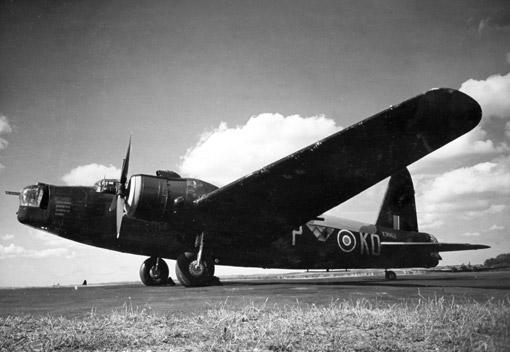
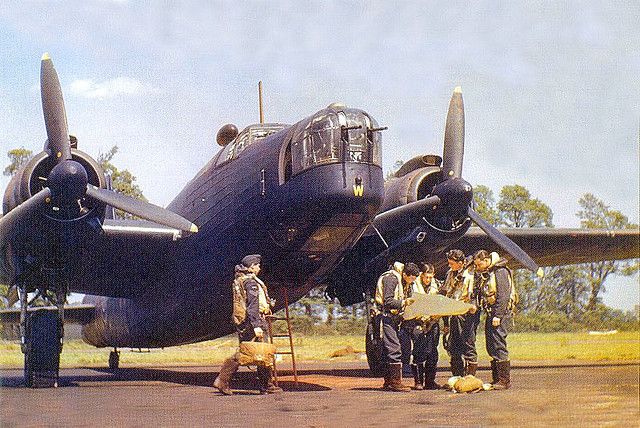
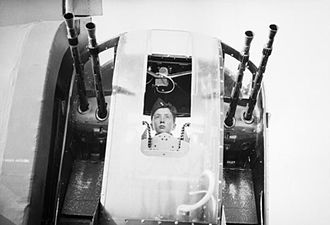
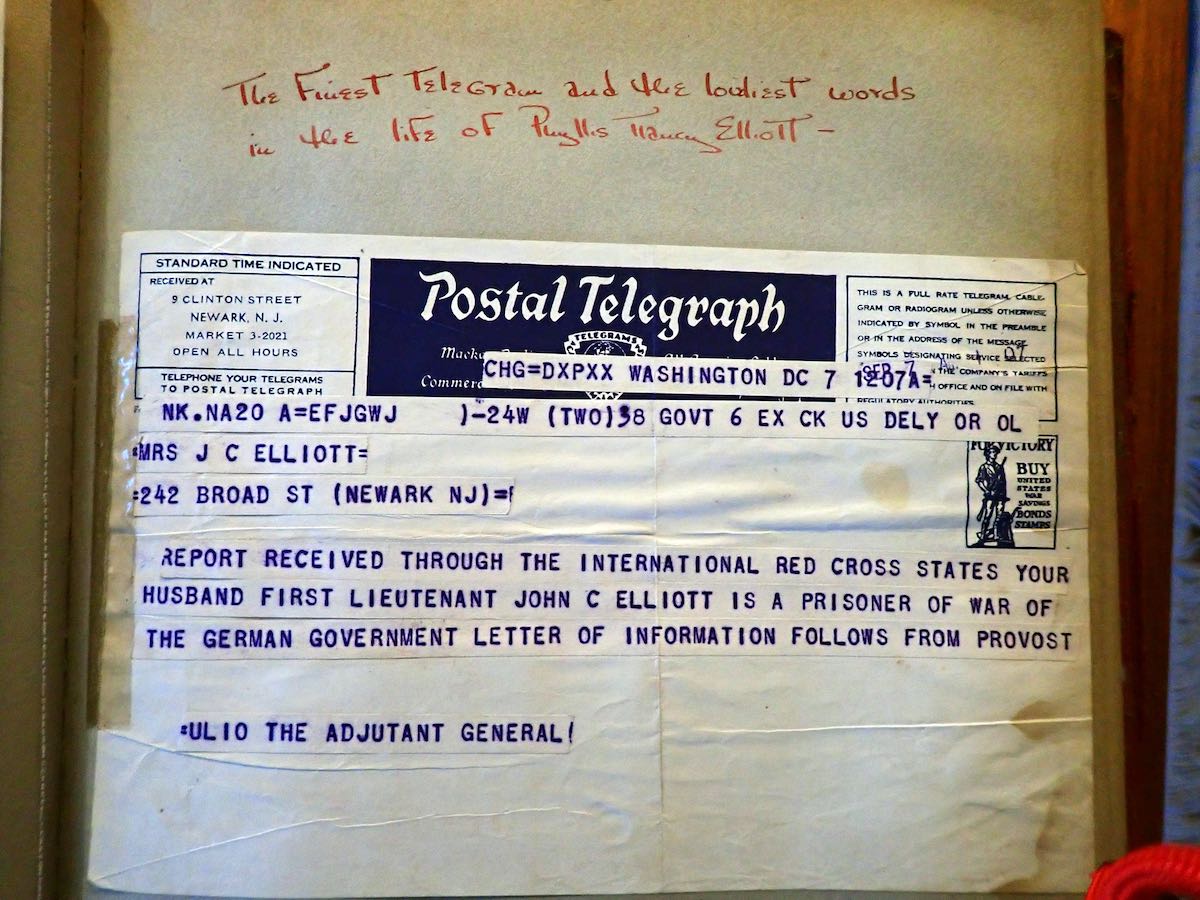
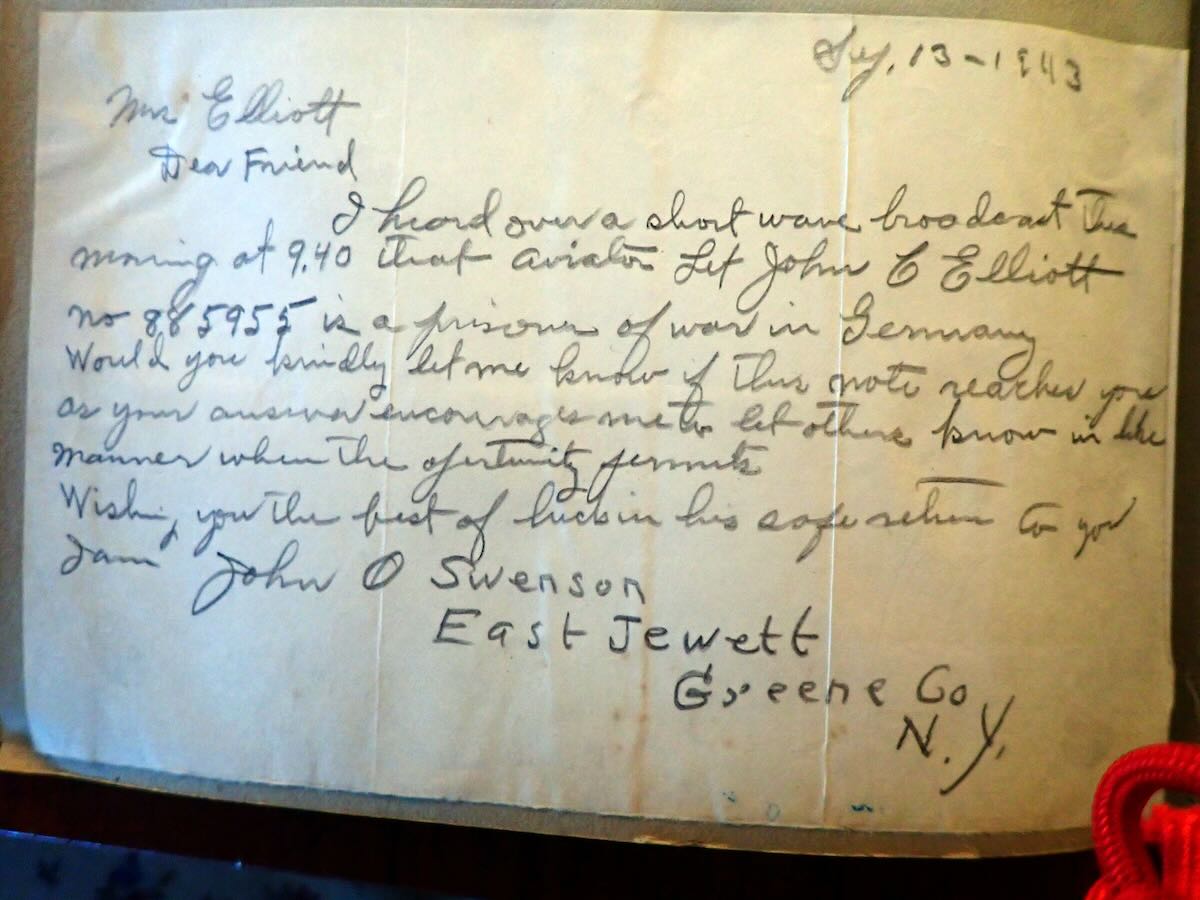
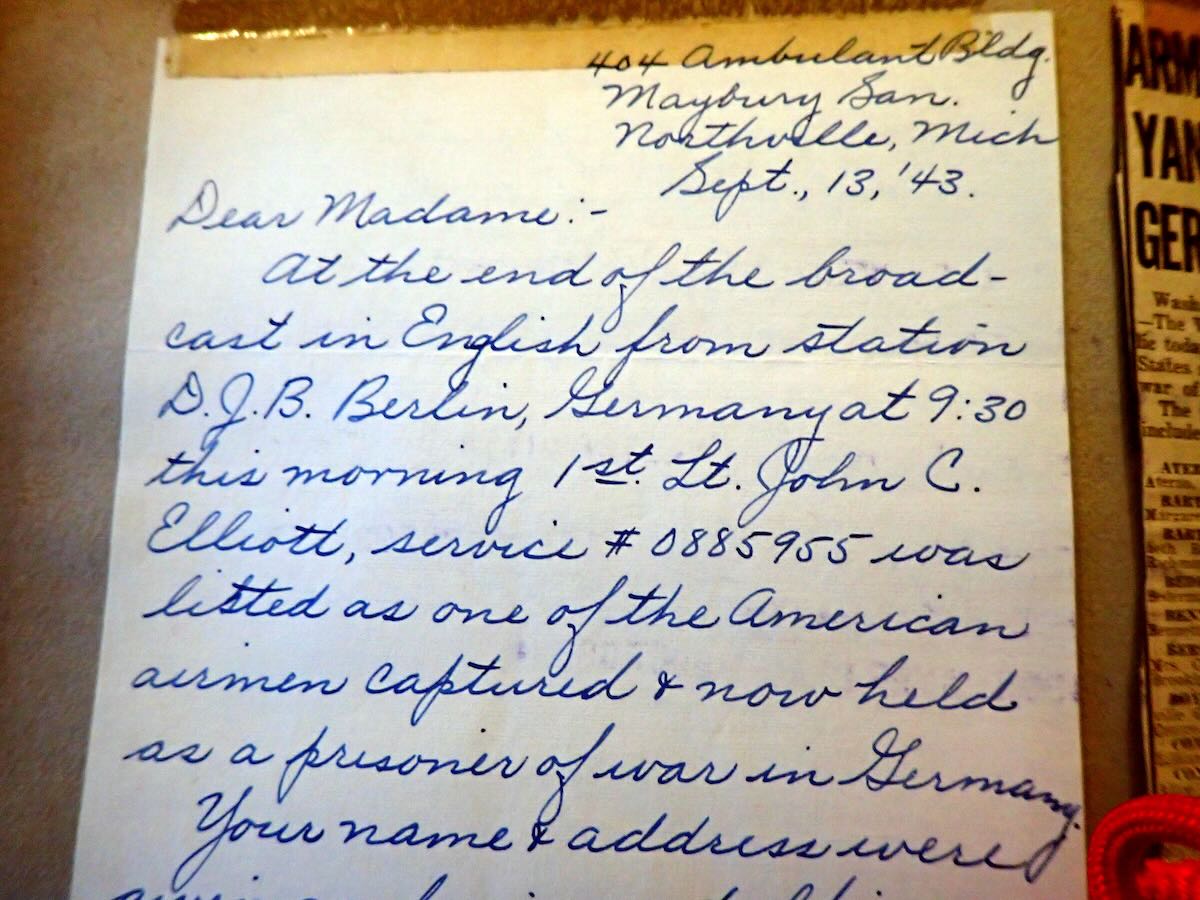
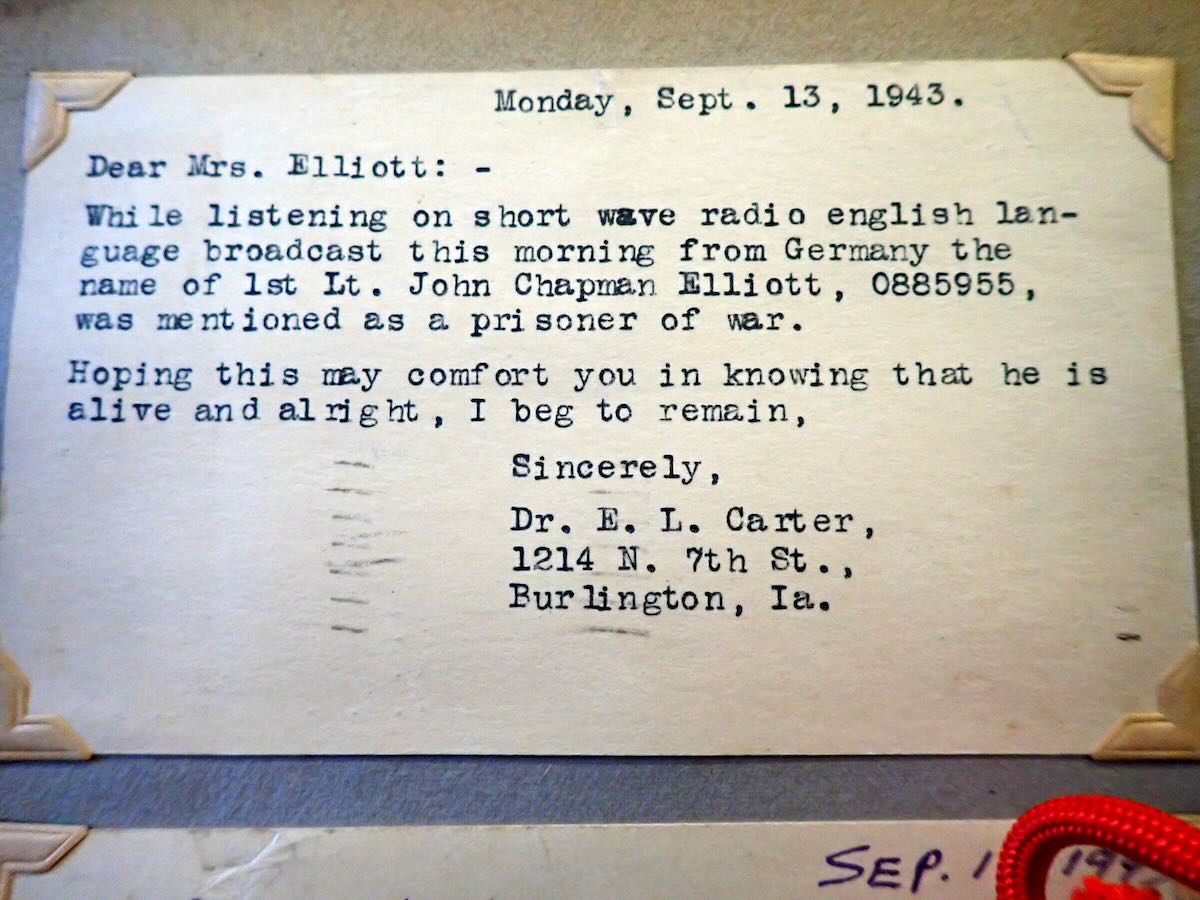
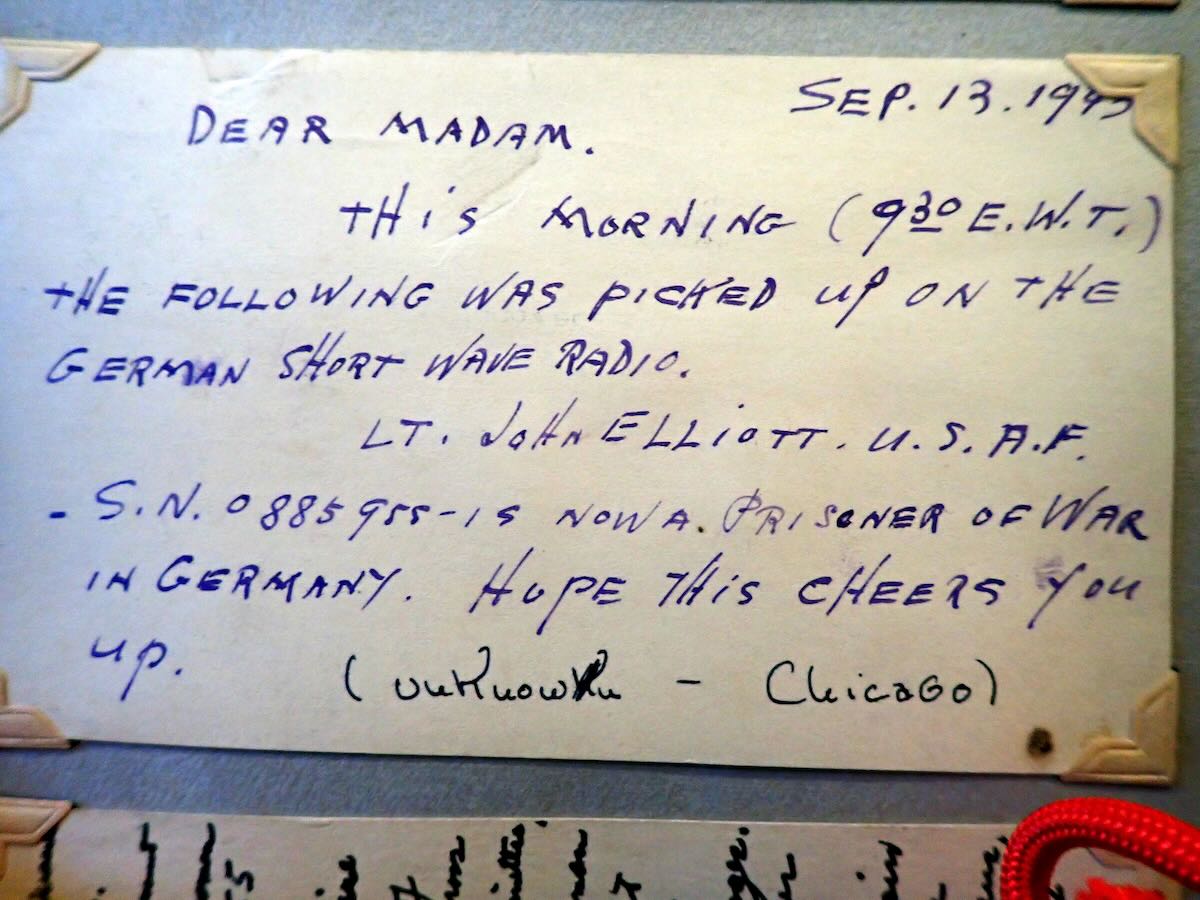
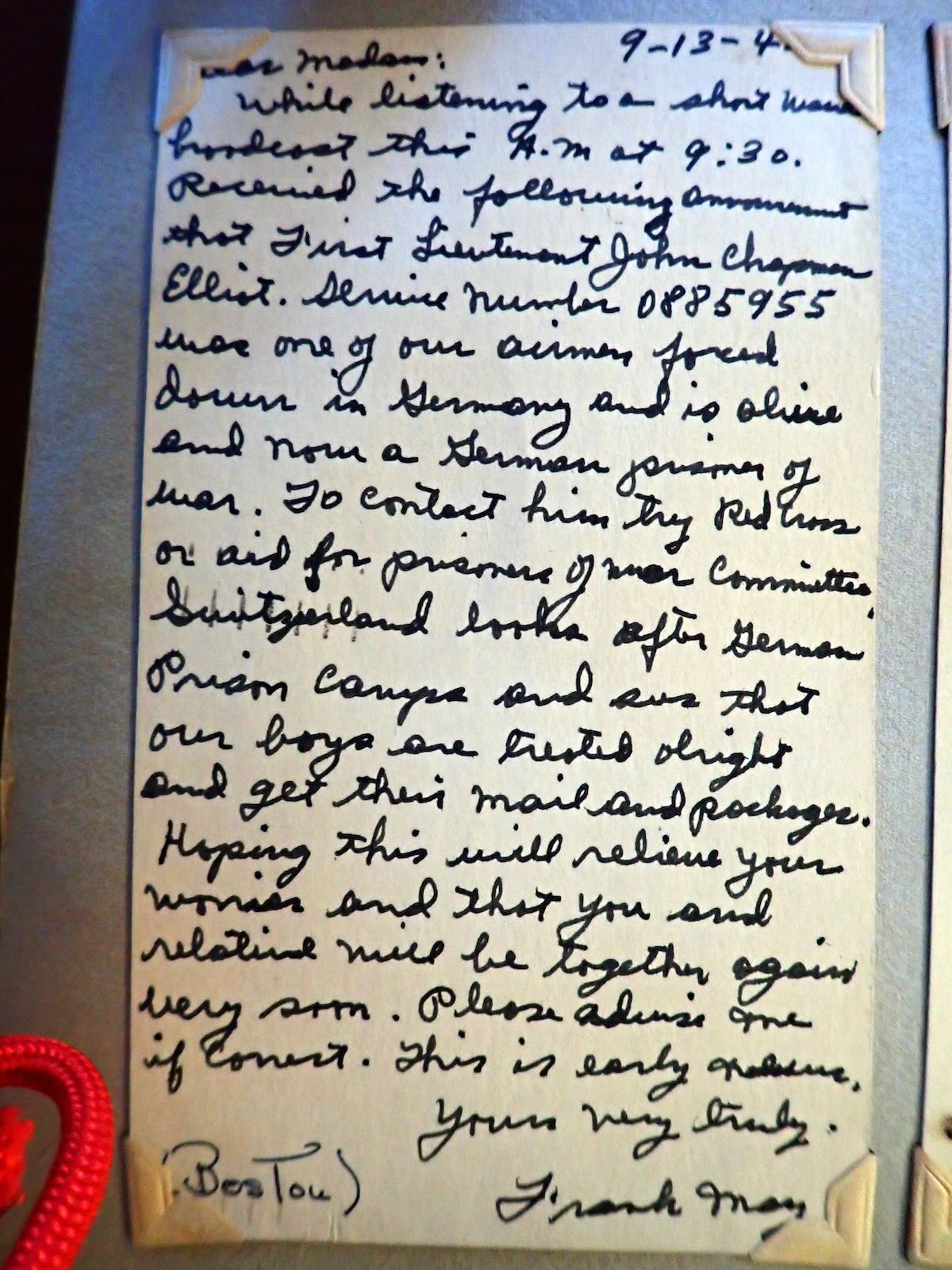
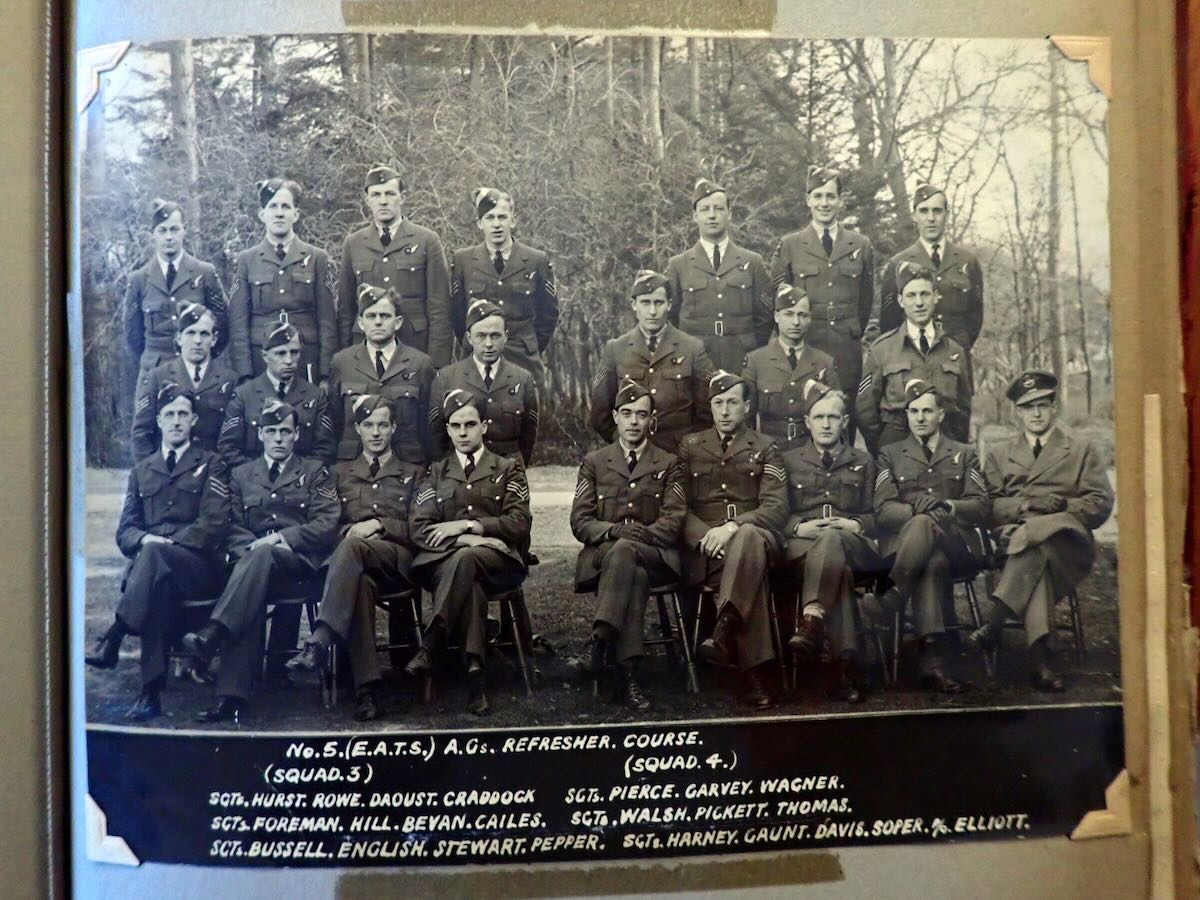
Greetings,
My (great) Uncle was the pilot of the plane that your father was shot down in. His name was Keith Johnston and was from Vancouver, Canada. Keith was killed either in the crash or when he bailed out. The details of the final flight are in this https://aircrewremembered.com/johnston-keith-mclean.html#.Y867-fPjOZQ.mailto attachment. I often wondered about his final flight as nobody seemed to know much about it and his brother (my grandfather) dies in 1972. I am intrigued by the fact your father was an American. I am guessing Canada was short on flight crews. Best Regards Tom
Awesome! Thank you so much!
My Dad decided to go to Canada to “get into the fight early.”
Cheers, Jock
My mother’s uncle was the pilot Keith Johnston killed on the mission. I have always known about him and was thinking about chasing down the details of his death. He had married a Scottish woman and signed up for a second tour. I was surprised that an American was part of the crew, so I’d like to understand that better. Keith is from Vancouver, BC where we continue to reside. The extended family will enjoy this.
Cheers, Tom Fawcett
Hi,
I’ve just stumbled on this page while doing some searching about my Grampa Angus (Guss) Vass. He flew with a Jock Elliott on the Lancaster Bomber “We Dood It” No. 550 Squadron under Jim Lord and am wondering if this is the same person. I would love to know if this was your Dad.
Cheers, Jenny
Sorry, Jenny, that wasn’t my Dad. He flew on a Wellington and was known as “Jack” Elliott.
I’m his son, Jock Elliott
Cheers, Jock
Hi,
I’ve just stumbled upon this page while doing some searching about my Grampa, Angus Vass. He flew with a Jock Elliott on the Lancaster Bomber “We Dood It” No. 550 Squadron and am wondering if this is the same person. I would love to know. Cheers, Jenny
Thanks Jock !! I can’t wait to see the Blog !!
Email me your photo holding Waves of Hope
if you can for Agnes’ Memory Book…
Amazing story, Jock, and the personal connection was a cleverly crafted surprise. Well written, and thanks for sharing such a personal tale with us.
I am always so pleased to see a new guest post from you here, every single one I can remember has been well worth my time, and always clearly so well researched. Thanks for your time.
Paul,
Thank you so much for your kind words.
I really enjoy writing for https://swling.com/blog/ . Thomas makes it easy and always does a wonderful job laying out the story.
The highlight for me are the reader responses. If they have been moved or helped, that’s great, and very often I learn something, which contributes to my enjoyment of SWLing.
Cheers, Jock
Wow !! Loved reading all the postcards you found…sounds like you should be writing your own Book !!
Please check out the website for “Waves of Hope”, the true story of 102 year old Agnes Joan Negra, who listened to a shortwave radio during WWII, to hear POW names, and then wrote to their families to let them know their loved ones were still alive !!
Website: ronaldedwardnegra.com
Val,
I plan on doing a follow-on blog about “Waves of Hope” and “World War II Radio Heroes.”
When I wrote my piece, I did not know about either book, but I have them both in my hands now, and they both show the power of radio and human kindness.
Cheers, Jock
Thank you, Jock, for presenting this to all of us. I see a strong resemblance between you and your dad. I am thanking God, he made it back home to share with you and your family what he went through. What a Warrior!
Mr. Elliott, thank you so much for the amazing and uplifting story. I read it several times and each time I recognized additional details that showed how much care you had taken to share it with us. The photos brought it to life, and the sequence of the text surrounding it was perfect. If you wanted to create some suspense in the reader’s mind about the identity of the flyer and his relationship to the author, you succeeded. So glad your Dad made it and your Mom could share all of that with you.
Among other things, for me at least, your story brings to life that no matter how bleak things can sometimes seem, there always can be perspectives that bring soothing hope. In this case, the perspective became a wonderful reality. I am sure all of the SWListening readers are very grateful that in 1946, your Mom and Dad were reunited and gave you to the world.
Thanks. Beautiful story, beautifully written.
Wow, Gary, thank you for your very kind words.
I am so glad you found it uplifting.
Cheers, Jock
A moving story.
I cannot get over the irony that radio requires hearing and that most of the crews of these aircraft went deaf because they were so noisy.
My late uncle was a radio officer in such aircraft. After the war, and when community radio started for a city of a million people, he produced an announced at a classical music program. His house had virtually every wall covered in LP records. In the end they had to sack him because he could not hear when the music ended.
Mangosman,
Thanks for your comments.
Cheers, Jock
Thats a great story. Thx for passing it along.
Thanks for the kind word, Ted.
Cheers, Jock
I see a strong resemblance between you and your dad. He was a real warrior. So glad you were able to share this story with all of us. I am thanking God for his service and that he was repatriated to be able to see his family again.
Thanks, Rick, that means a lot to me.
Cheers, Jock
Great story Jock. Thanks for posting it.
Thanks for the kind words Tom.
Cheers, Jock
A few years ago, Lisa Spahr found a group of such letters related to her grandfather’s time as a POW. She wrote a book about these and the letters of other families that contacted here:
https://www.amazon.com/World-War-Radio-Heroes-Compassion-dp-0989191400/dp/0989191400/ref=mt_other?_encoding=UTF8&me=&qid=
73,
John
John,
Thanks for the link. I referenced the book below in my response to Robert.
Cheers, Jock
Great Story. Thanks for sharing it.
I wasn’t aware of the book: “WWII Radio Letters: A real-life shortwave story”.
I just went to Amazon and bought the Kindle version.
Another book that has come out in the past couple of years is:
“Waves of Hope” by Ronald Edward Negra. His mother would listen to shortwave and
write to families. There are a couple of You Tube videos of presentations that Ronald
Negra did for a Library and the NJ Antique Radio Club.
73
Bill WD9EQD
Smithville, NJ
Oops. That should have read
I wasn’t aware of the book: “World War II Radio Heroes: Letters of Compassion”.
Copy and Paste bit me again.
73
Bill WD9EQD
Bill, No problem. Thanks for the kind words and the reference to “Waves of Hope.” I’ll check it out.
Cheers, Jock
Bill,
I just ordered the book, Waves of Hope. Thanks for the heads-up.
Cheers, Jock
Lisa Spahr joined us at the Winter SWL Fest the year her book was published. She spoke about the book, and she was intrigued about the hobby and the enthusiasm that many still have for shortwave.
Richard,
That must have been an excellent experience. I look forward to reading her book.
Cheers, Jock
Very nice story! Thanks!!
73,
Randy, KS4L
Randy, thanks for the kind words!
Cheers, Jock
Wow!! What a great story, Jock! It’s no wonder you are such a fan of shortwave radio! Your parents were obviously made of sterner stuff than most! Cheers!
Thanks, Robert!
What’s weird is that, a week ago Saturday, I went to bed thinking about a radio comparison that I thought might interest SWLing.com blog readers. In the morning, I woke with a vague remembrance of a scrapbook my Mom had kept during WWII. I had not seen or thought of it in two decades or more . . . but I felt compelled to find it . . . there was something in there about shortwave radio, my brain kept telling me. Well, I dug it out, and as I read, sometimes tears were running down my face.
Since writing that piece, I have since discovered that there is a book about those WWII shortwave listeners who provided hope to those whose loved ones were “status unknown.” It’s called World War II Radio Heroes: Letters of Compassion, 2nd Edition, and it is available on Amazon.
In addition, there is a great deal of information here: https://www.ontheshortwaves.com/history-III.html#POW
I have nothing but the greatest admiration for those dedicated listeners. I understand that some of them sent out thousands of postcards to families who were waiting for news of their loved ones.
Cheers, Jock
Hi Jock,
My (great) uncle Keith Johnston from Vancouver BC was the pilot of the Wellington that was shutdown. He was killed in the crash or during the bailout. I have always been curious about what happened to Keith. My grandfather died in 1972 so I never knew what exactly happened. The details of my Uncles last flight are in this post. https://aircrewremembered.com/johnston-keith-mclean.html#.Y867-fPjOZQ.mailto I am curious how an American came to part of the flight crew.
All The Best Tom